The restructuring of the agricultural sector in Yen Bai province towards increasing added value aims at "Ecological agriculture, modern countryside, civilized farmers". In which, "Farmers are the center, countryside is the foundation, agriculture is the driving force" not only changes the face of agricultural production but also creates a strong driving force for rural economic development, building new rural areas (NTM), improving people's lives comprehensively and sustainably.
>> Lesson 1: Affirming the role of "supporting" the economy
>> Article 2: Greening agriculture - Essential for sustainable development
Prosperity of the countryside
It can be seen that each step in restructuring agriculture associated with building sustainable new rural areas has contributed to refreshing the picture of rural life in Yen Bai, adding a warm and prosperous color to the once poor countryside.
Coming to Bao Dap today - the first commune in Tran Yen district to meet the new rural standards, it is hard to imagine that 10 years ago, this locality was still one of the poor communes in the district; pure agriculture mainly focused on rice and corn; mulberry trees had not yet formed a region or production link. On the journey to build a new rural area, Bao Dap has reached new goals: advanced new rural area in 2022 and model new rural area in digital transformation in 2023.
Realizing that one of the key issues in building advanced rural areas and model rural areas is to reorganize production, increase product value and brand, easily access the market and attract investment. The local agricultural economy has been restructured, Bao Dap has formed a concentrated mulberry production area. Cooperatives have signed a chain of links with Yen Bai Mulberry Company to supply seeds and consume products. This company has invested in building a modern silkworm nursery in the commune, ensuring stable output for all silkworm cocoon products of people in the commune and neighboring areas.
Chairman of the Commune People's Committee Tran Duc Tien affirmed: "The restructuring of the agricultural sector associated with the construction of new rural areas has brought about a flourishing and breakthrough in the agricultural and rural economy. Economic zones, economic trees, and occupations in rural areas have been clearly defined. Currently, Bao Dap Commune Industrial Cluster has attracted 3 new investment enterprises, namely Yen Bai Mulberry Silk Company, ATECH Development and Application Joint Stock Company Branch and Vina Plywood Production Company. The trade and service sector has shifted strongly with about 400 business households. Bao Dap currently has only 0.87% of poor households; the average income per capita reaches 64 million VND/year, ranking among the top in the district. People are truly happy with life in their homeland."
The rural economy is now not just about rice fields but is expanding to community tourism, handicraft processing and digital transformation, gradually transforming Yen Bai's countryside. Changing the mindset of agricultural production to the mindset of agricultural economy, transforming farming practices and production towards association and collective, Dai Minh - the first model NTM commune in Yen Binh is the first locality in the district to have no more poor households, literally without means of production. The whole commune currently has 5 poor households, accounting for 0.5% - these are households that are elderly, weak, single, and unable to work.
Chairman of the People's Committee of the commune Nguyen Kieu Hung said: "If talking about the general living standards of the people, Dai Minh has a fairly good standard of living compared to other localities in the district. In 2023, the average income per capita of the commune reached nearly 60 million VND. The rural economy is no longer purely when the new rural area is truly a driving force. The transformation of production thinking towards concentration and collective has promoted the formation of 4 cooperatives and 23 agricultural cooperative groups in the area, supporting each other in terms of techniques, plant varieties, livestock, and product consumption. In 2025, Dai Minh strives for an average income per capita of about 62 million VND.
From the economic life of the two pioneering localities in building new rural areas, looking more broadly, we can see that Yen Bai's rural economy is currently developing strongly, diversely and more sustainably: agriculture is transforming towards efficiency, greenness and sustainability; rural tourism and service economy are expanding development space; digital transformation and rural startups are creating new directions and the most obvious results are the results in farmers' income and life. That is the combination of restructuring the agricultural sector and the new rural construction program.
This year, the province aims to provide vocational training to over 4,000 rural workers, gradually increasing the proportion of trained workers with certificates and degrees. This is part of the province's larger goal of promoting labor restructuring, increasing productivity and income for people, and sustainably reducing poverty in the area.
Building sustainable new countryside
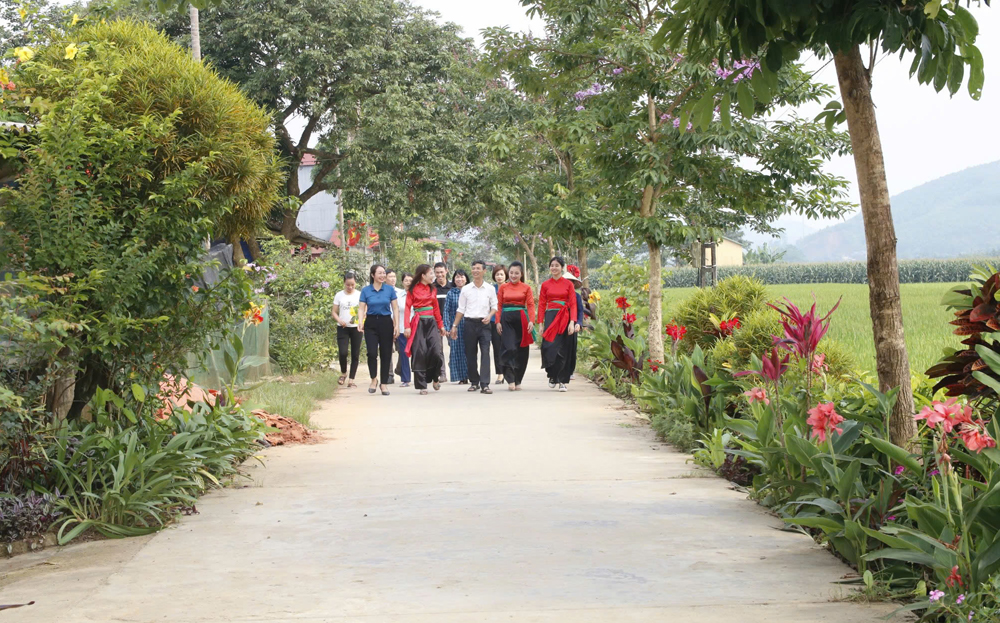
New rural areas have changed the face of each village in each locality of Yen Bai province.
Oriented to continue restructuring the agricultural sector towards improving quality, efficiency, added value, promoting rural economic development associated with building sustainable new rural areas, based on the viewpoint of changing the mindset from agricultural production to agricultural economic thinking with 3 main factors: ecological agriculture, modern countryside and civilized farmers, Yen Bai agricultural sector continues to maintain and develop specialized raw material areas, rapidly develop the scale of output, quality of key products, specialty products, organic products, OCOP products associated with building brands, geographical indications, growing area codes, traceability, meeting market demand, ensuring food security.
At the same time, it is necessary to develop multi-purpose forestry; protect the existing natural forest area well, improve the quality and efficiency of planted forests in the direction of large timber associated with tourism, services, processing industry, preservation, consumption, serving domestic demand and export. Yen Bai encourages the development of green agriculture, organic agriculture, high-tech agriculture, efficient use of resources associated with ecological environment protection, adaptation to climate change; create sustainable livelihoods on the basis of promoting advantages, natural conditions, and strengths of regions in the province. In addition, promote the attraction of investment projects for deep processing, production and export of agricultural and forestry products... to lay a solid foundation to promote rural economic development, creating momentum for new rural construction.
Promoting the restructuring of the agricultural sector according to Resolution No. 20/2021-NQ/TU of the Provincial Party Committee, Resolution No. 69/2020/NQ-HDND, Resolution No. 05/2022/NQ-HDND of the Provincial People's Council and decisions and projects of the Provincial People's Committee will strive to increase the growth rate of the agricultural, forestry and fishery sector by 2025 to 5.85%. At the same time, effectively implementing policies and guidelines to support the recovery of production and business activities, promoting economic growth and improving people's lives to bring the structure of total agricultural, forestry and fishery products in the area to 21.1%.
The national target program on new rural construction directed by the province must ensure practicality, depth, efficiency, and sustainability associated with the process of rural urbanization in places with conditions.
In particular, the role of the people as the subject, voluntary and direct in building the new rural areas has been promoted; actively attracting enterprises to invest in developing rural socio-economic infrastructure in a civilized and modern direction, connecting rural areas with urban areas; preserving the green, clean, beautiful landscape environment, rich in local cultural identity, especially taking rural residents as the subject, bringing about a more positive and clear change in the lifestyle of villages, hamlets, each household and the direct life of each person living in rural areas. The whole province strives to have 9 or more communes meeting the new rural standards by 2025; 8 or more communes meeting the advanced new rural standards; 3 communes meeting the model new rural standards and Tran Yen district completing the criteria to meet the advanced new rural district standards.
Obviously, agricultural restructuring associated with rural economic development in Yen Bai is not only a major policy but has become a profound, comprehensive and vibrant transformation journey. Yen Bai land today, from lowland to highland, is no longer a traditional monoculture but is gradually becoming modern, green and efficient production areas, creating sustainable values for the community.
The rural economy is no longer a low-lying area but is making strong breakthroughs with high-tech agriculture, OCOP products, unique tourism and creative startups. There are certainly still many difficulties ahead, but with new thinking, new ways of doing things and the consensus of the entire political system and the people, Yen Bai agriculture will continue to be a solid "pillar", a foundation to promote prosperous and sustainable rural development in the spirit of "Taking farmers as the center, rural areas as the foundation and agriculture as the driving force".
Minh Thuy
Source: https://baoyenbai.com.vn/12/348866/Tai-co-cau-nong-nghiep-gan-voi-phat-trien-kinh-te-nong-thon---Last article-Phat-trien-kinh-te-nong-thon-va-xay-dung-nong-thon-moi-ben-vung.aspx





![[Photo] Prime Minister Pham Minh Chinh chairs conference on anti-smuggling, trade fraud, and counterfeit goods](https://vphoto.vietnam.vn/thumb/1200x675/vietnam/resource/IMAGE/2025/5/14/6cd67667e99e4248b7d4f587fd21e37c)







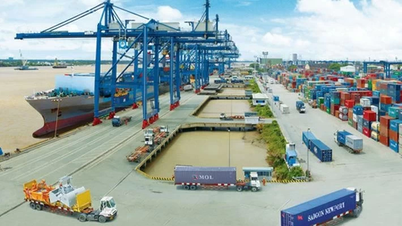








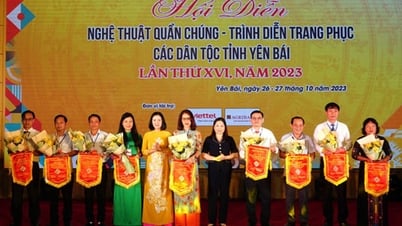
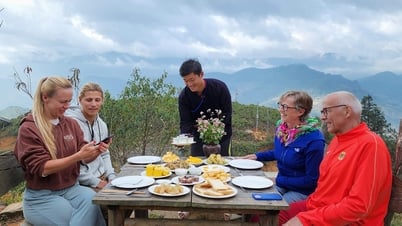
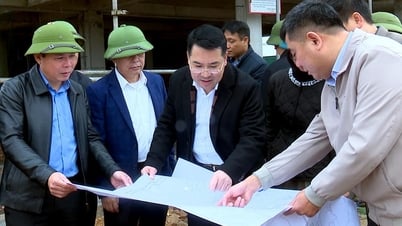

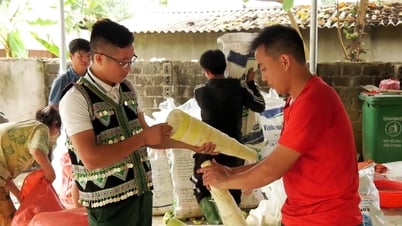
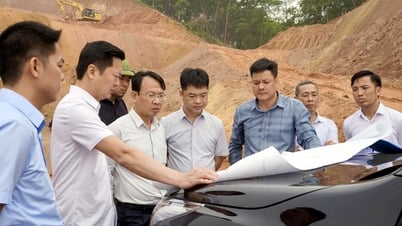






















































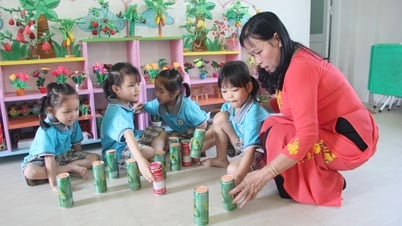







Comment (0)